Robert Deyber (born August 1955 in Greenwich, Connecticut) is an American artist most known for literal visual portrayals of cliches, euphemisms, and idioms from the English and other languages. The San Francisco Examiner in 2009 described him as a “pop surrealist” whose style “has appeal for new as well as experienced collectors.”
His work relates to that of Thomas Cole and Frederic Church of the Hudson River School, surrealists like Salvador Dalí and René Magritte, naive painter Henri Rousseau, the colorists Henri Matisse and Marc Chagall, and Andy Warhol.
Deyber paints his own scenes from the prose that peppers the English lexicon. His works range from literal translations of fanciful sayings to kitschy depictions of everyday terminology.
Robert Deyber … “Non verbis, sed Rebus”
Non verbis, sed Rebus is a Latin phrase which translates to, “not by words but by things”. The Rebus art form means using existing symbols, such as pictograms, purely for their sounds regardless of their meaning, to represent new words. Many ancient writing systems used the rebus principle to represent abstract words, which otherwise would be hard to be represented by pictograms. Rebus originated in the 15th century Tudor England during the reign of Henry VIII. Even the name Tudor was represented in various arts and crafts of the time as two doors side by side. Resurrecting this art form has allowed me to draw upon an unlimited source of imagery. It enables me to go off in many directions, switching words in and out to create an even larger source of original imagery. Rebus lets me wander in and out of strange and wonderful places and represent a world of characters and places and make them my own.
My art involves the visual interpretation of idioms, euphemisms, and cliches collected from vast sources of material. I cannot allow myself to feel tied down to a limited source of subject matter. One thing leads to another, and another and so on.
Certain characters reappear in my paintings, such as the Bad Hare, The Right to Arm Bears and the Cock and Bull story. There are endless scenarios in which these characters become involved.
I feel that if one wants to excel at a particular craft or other endeavors, one must be obsessed. This is something which comes naturally to me. When I first came up with the idea to resurrect the Rebus art form I thought it would not last long and I would move on to something else. I started thinking that there wouldn’t be enough material to maintain a sustained run, but as I began I realized that the inspiration would never end, at least not anytime soon. When I first conceived the idea of images based strictly on existing phrases of one sort or another I decided to remain within the confines of the phrase. I would be able to render an image only if there was an existing phrase to correspond with it. For instance, if I wanted to paint a dog it could happen only if there was a phrase containing the word dog or some word related to dogs. There was something about the restricted nature of this theme which fascinated and challenged me. I like a good challenge.
Every artist strives to have a singular and autonomous style which can be combined with alluring and arresting subject matter. For me, contrast has become a very important element. Painting certain animals, such as zebras, will give you contrast with very little effort. With the black and white stripes it’s almost impossible not to be drawn visually to its pattern. Even at the furthest reaches of your peripheral vision, BANG, there they are. With the correct painting techniques this “must look” situation can be achieved with more than likely a bit less razzle-dazzle.
~ Robert Deyber
To learn more about Robert, visit his website at www.robertdeyber.com
©2015, All Rights Reserved, Robert Deyber



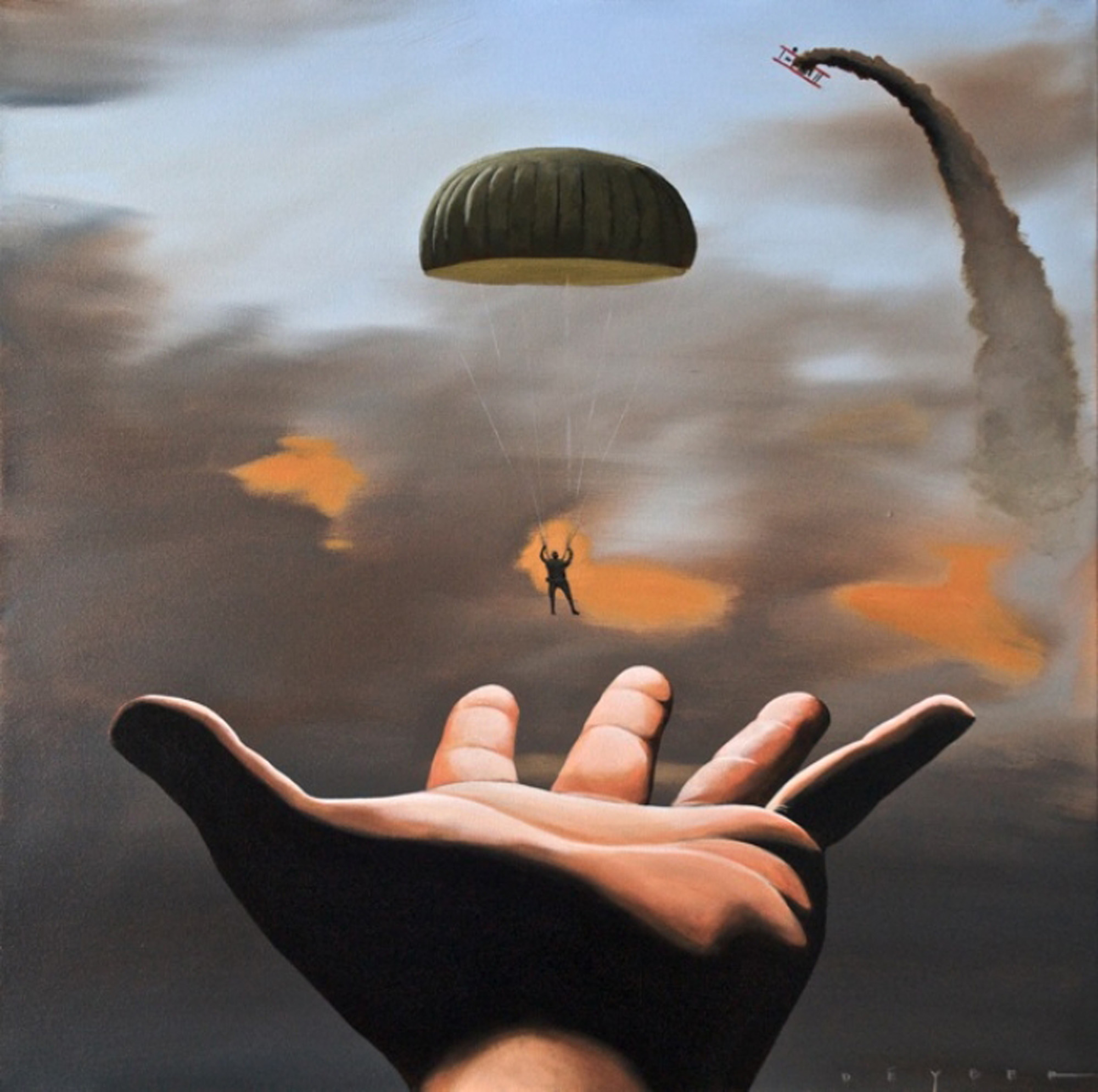
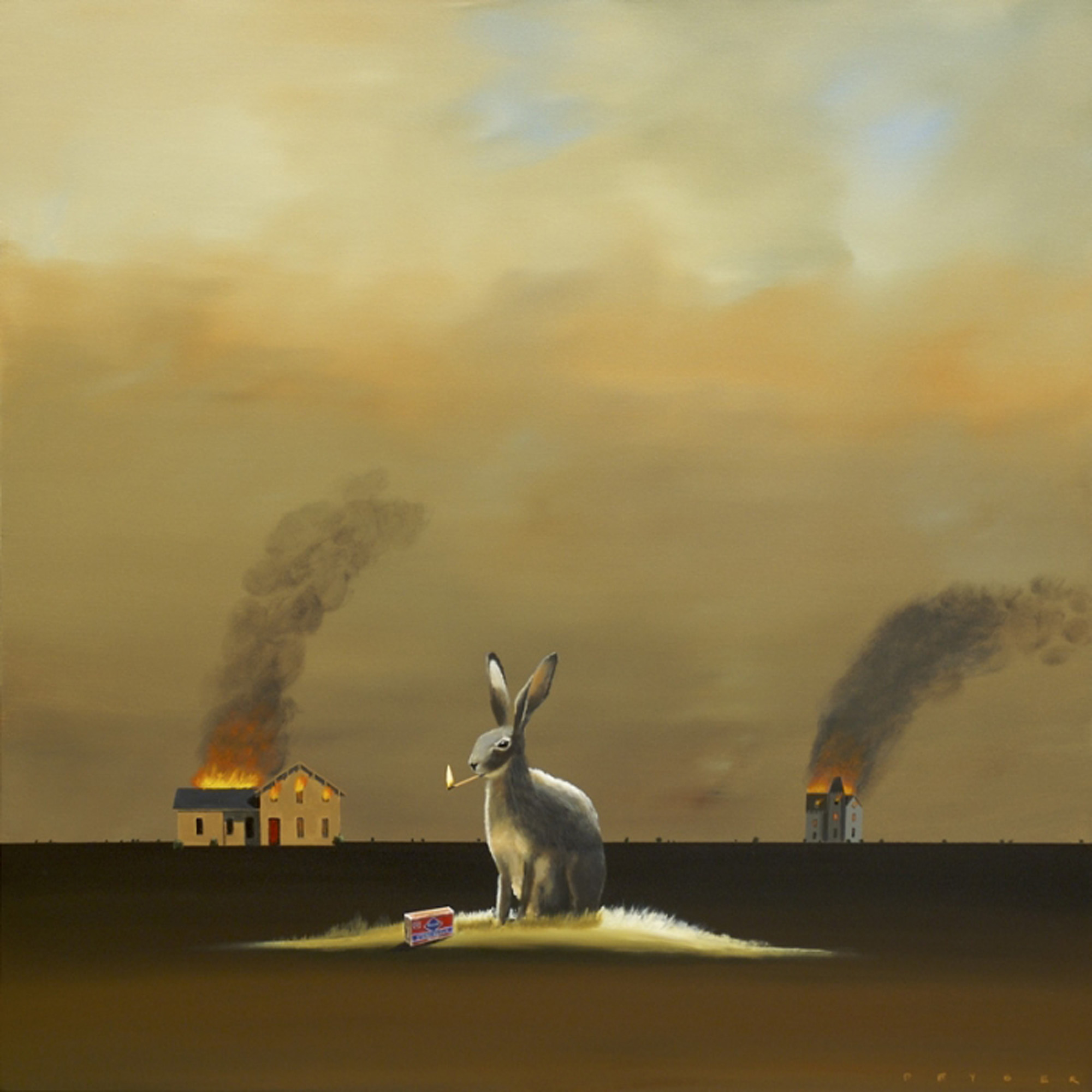
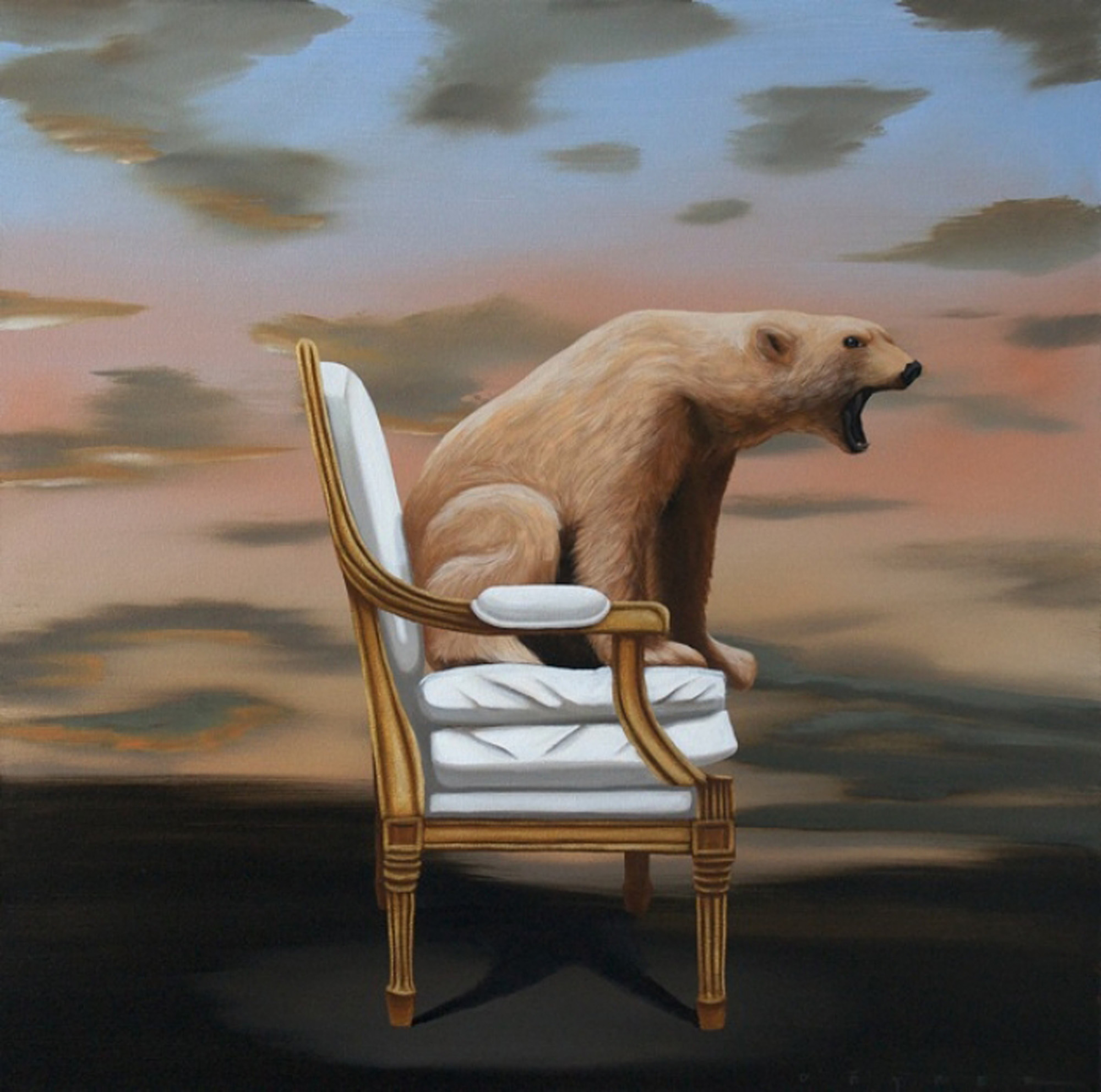
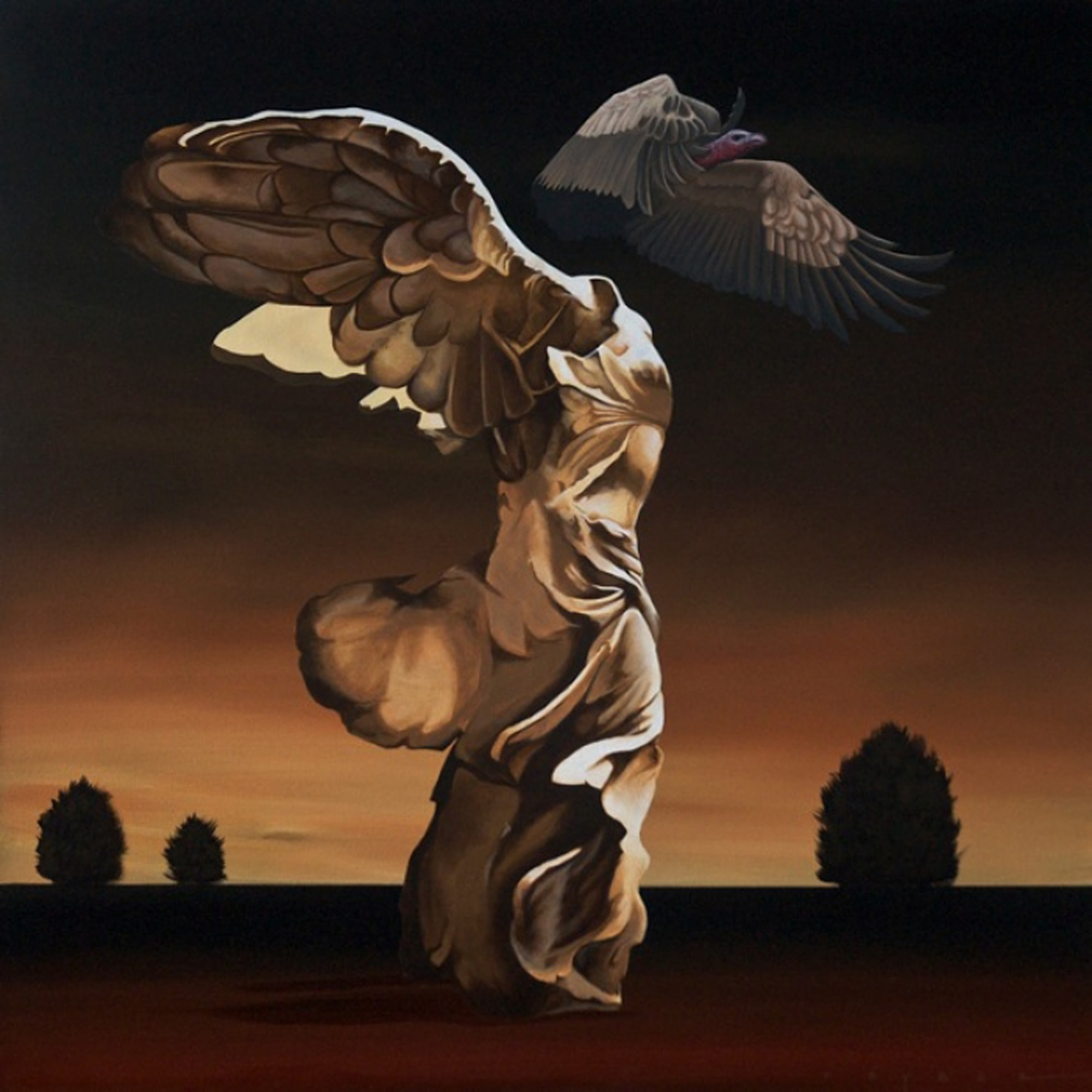
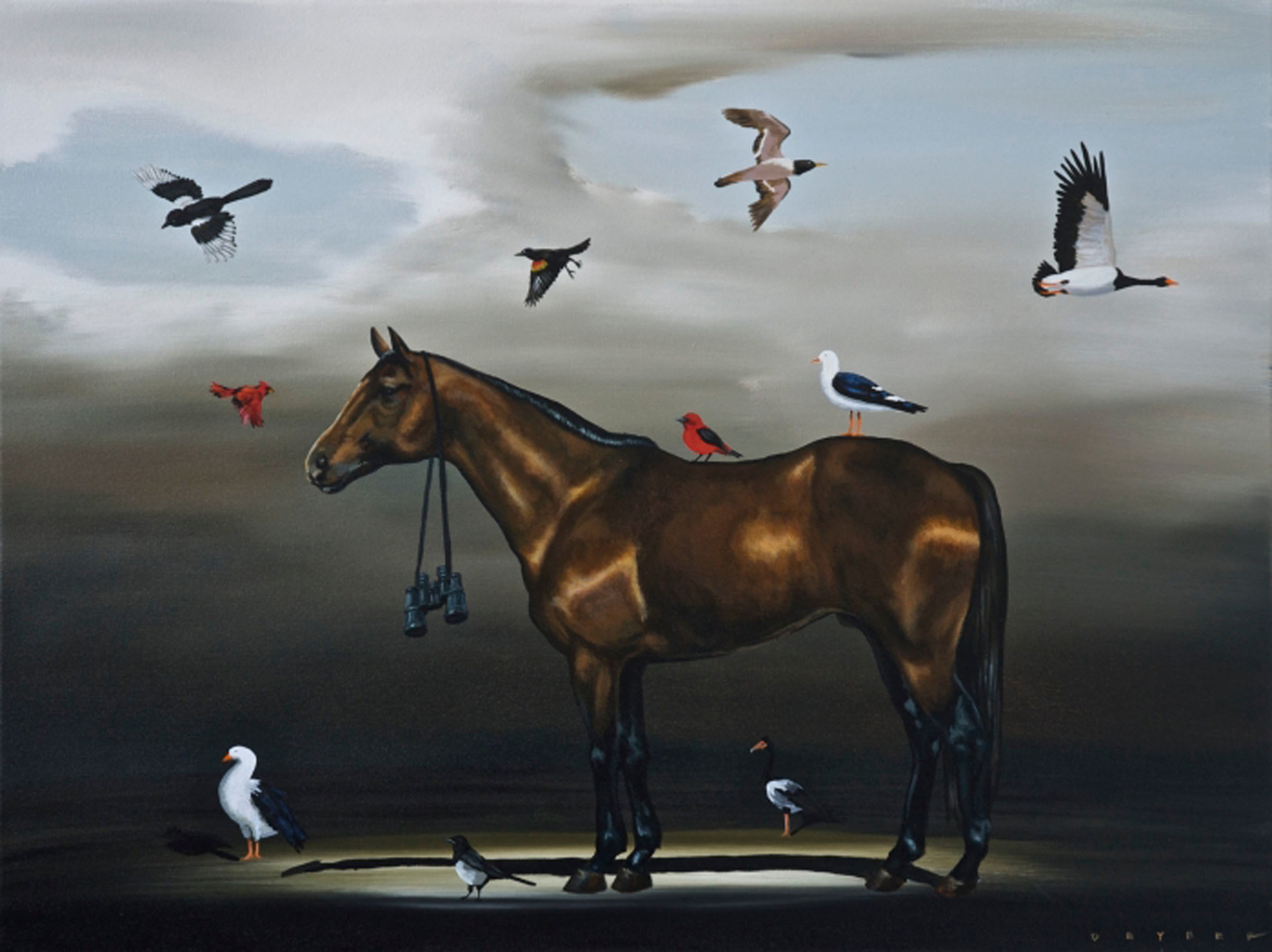
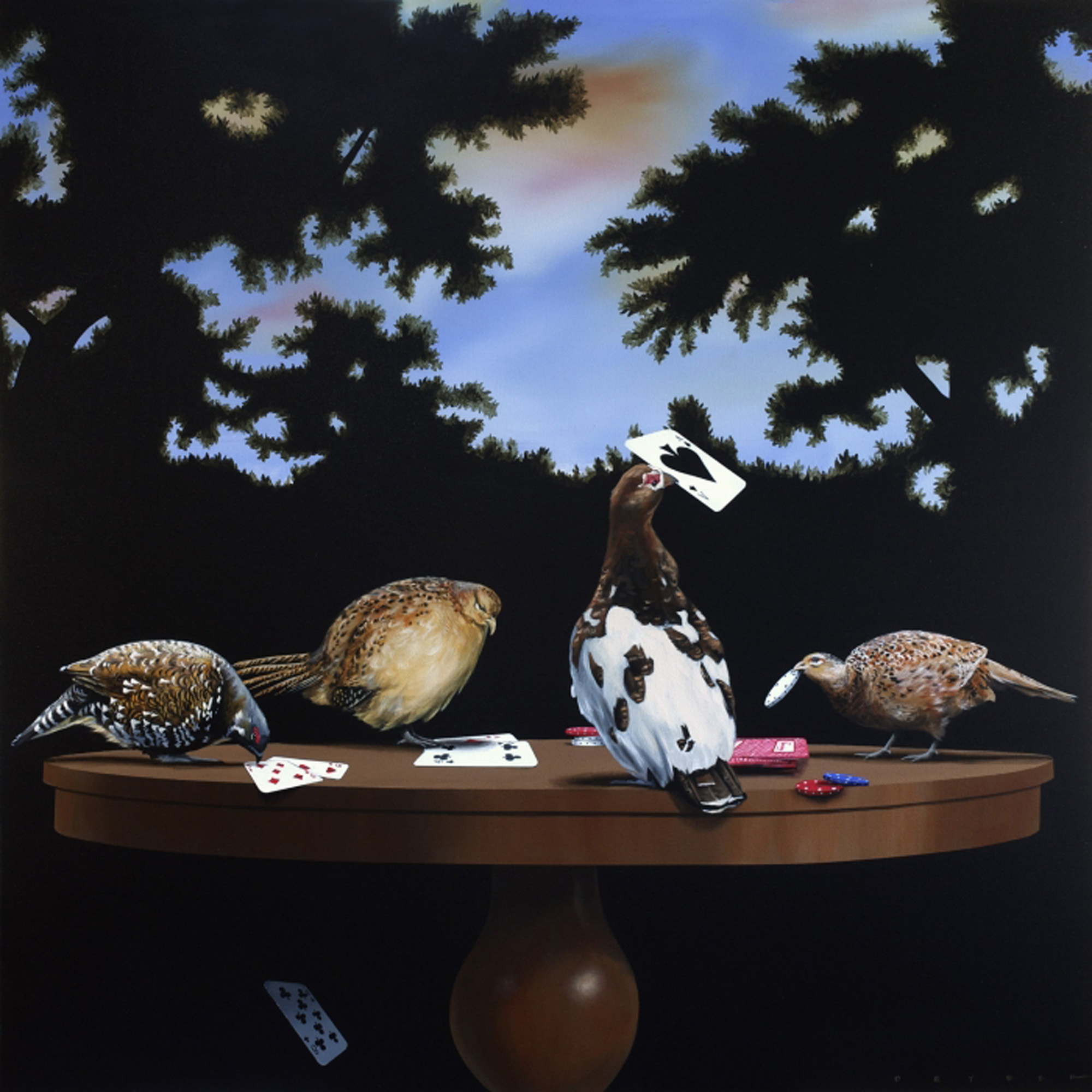
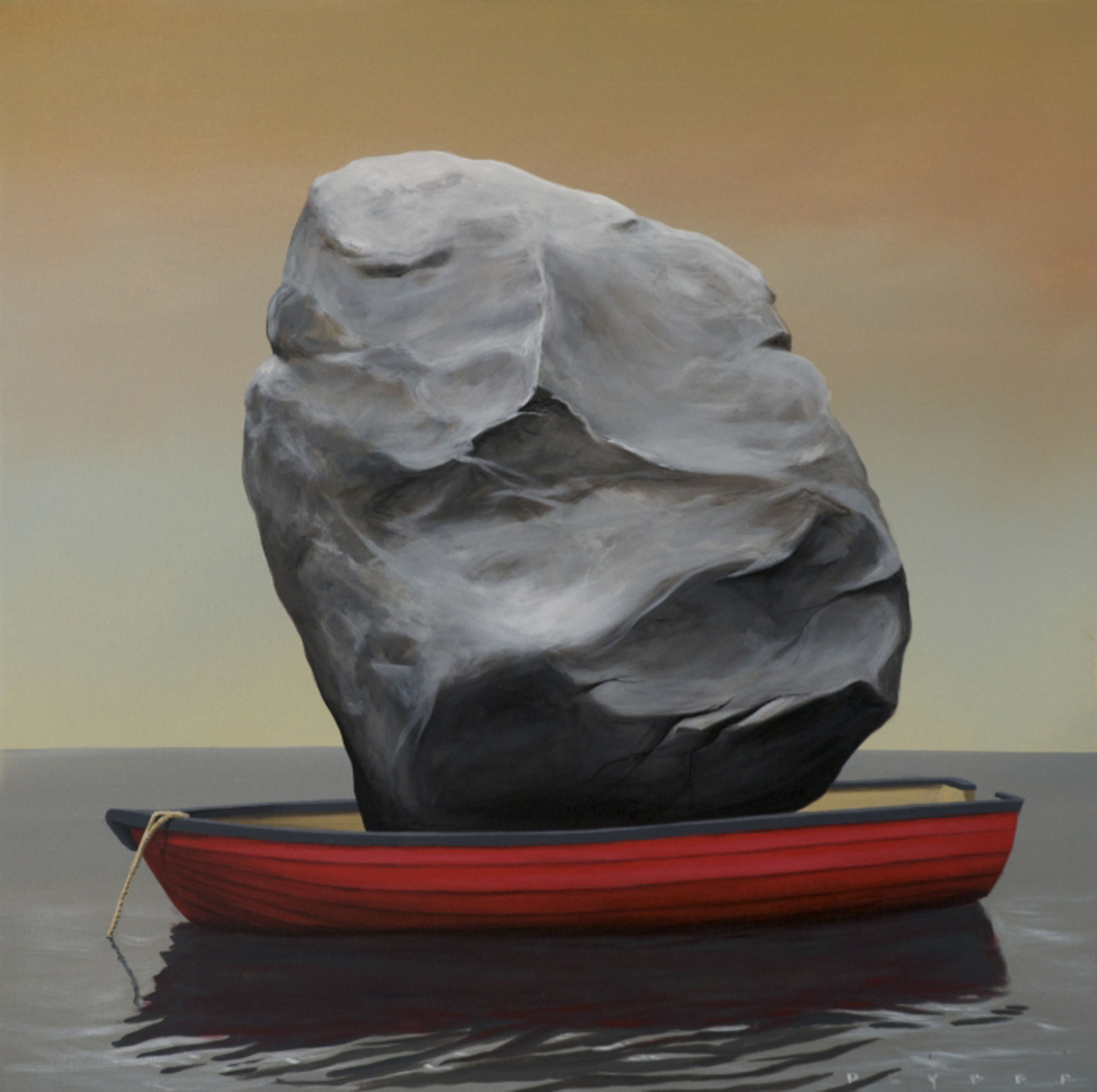
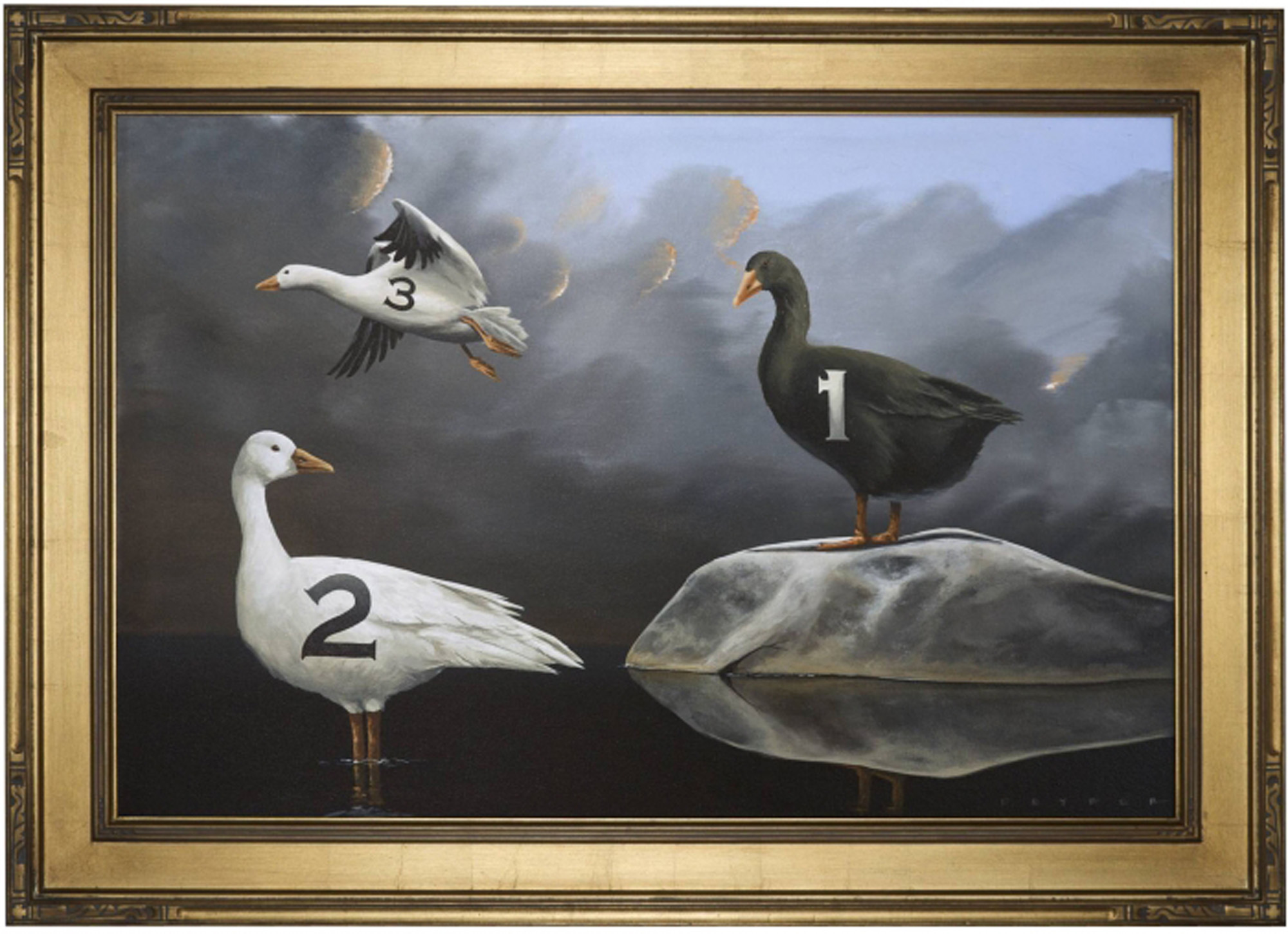
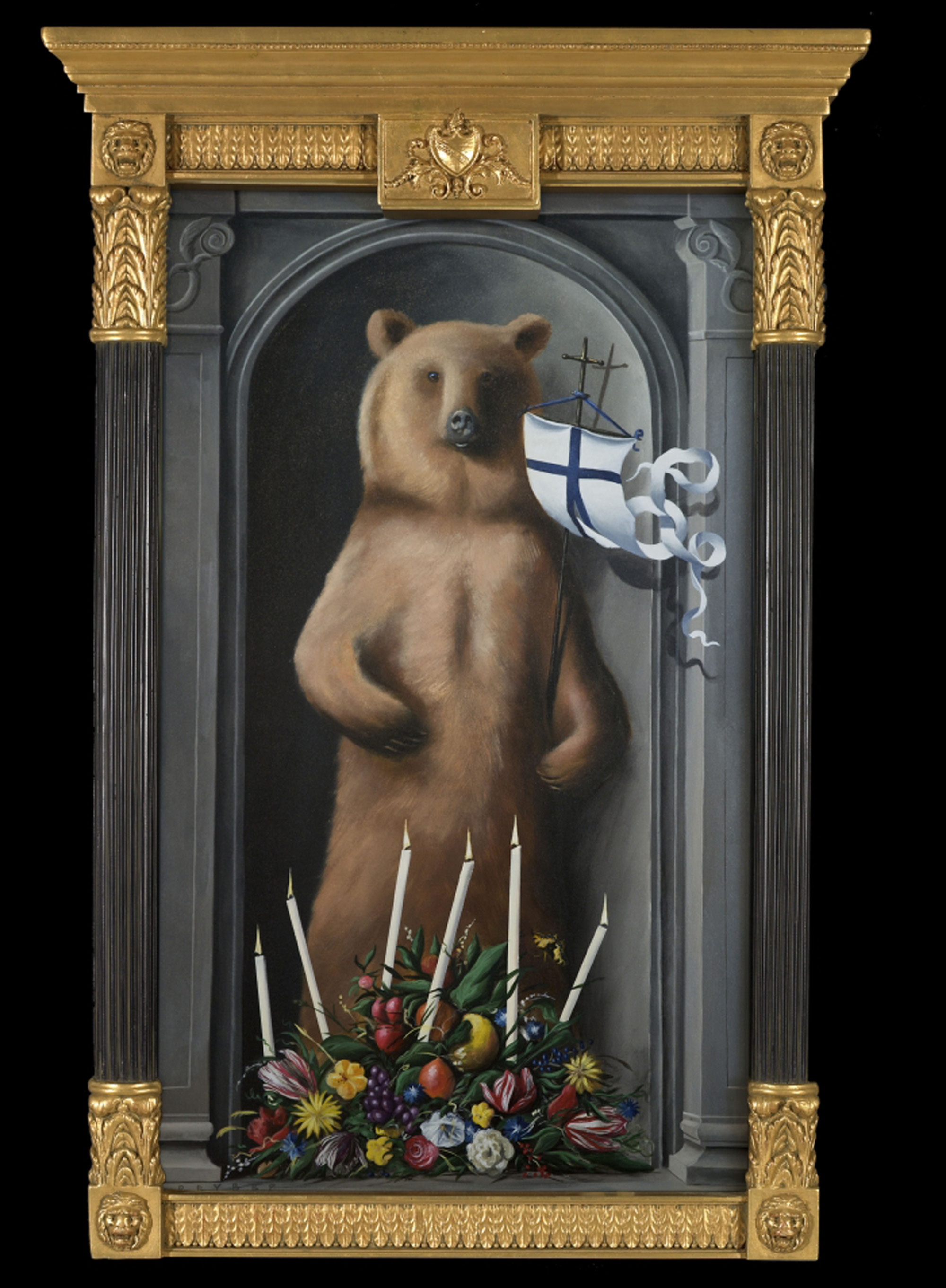
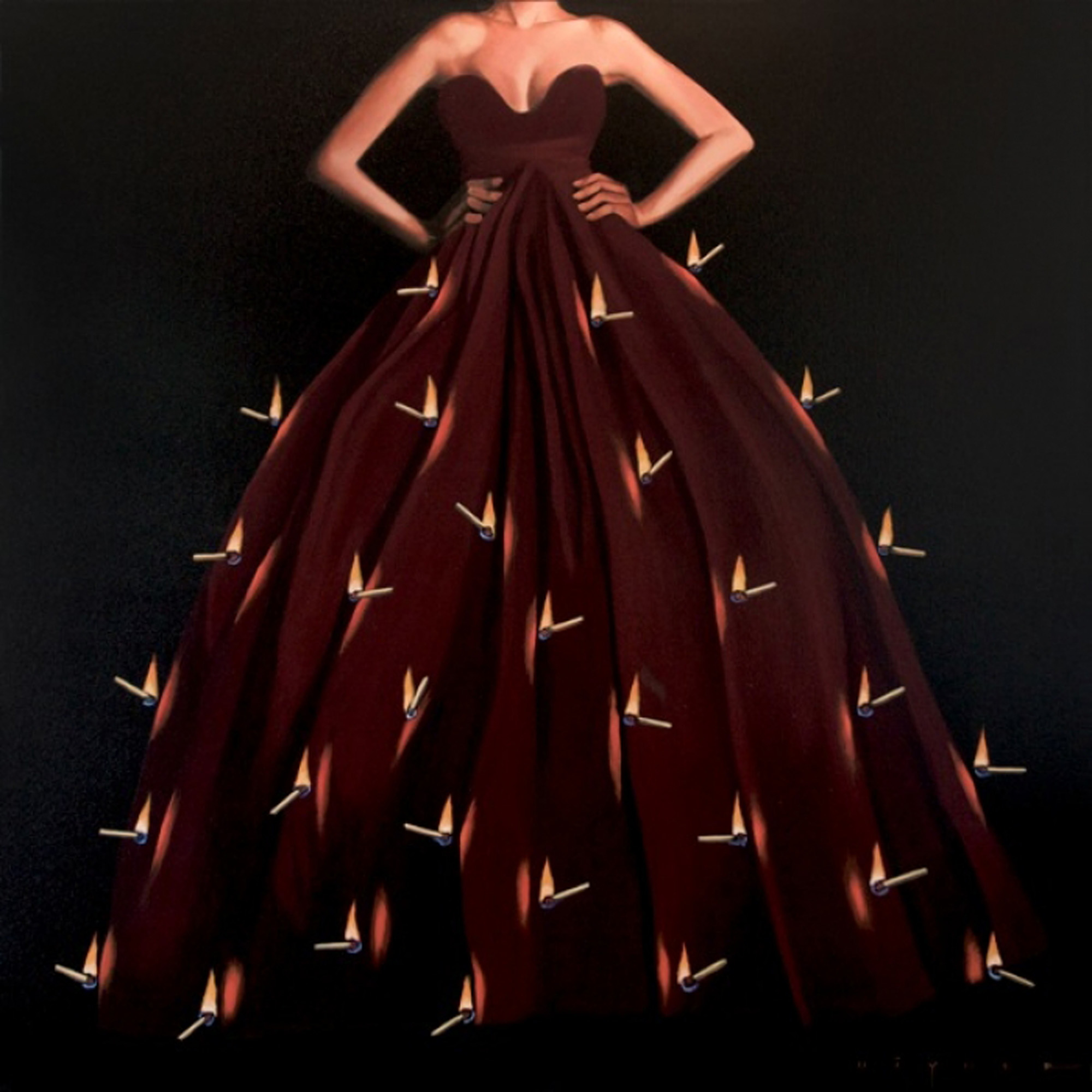
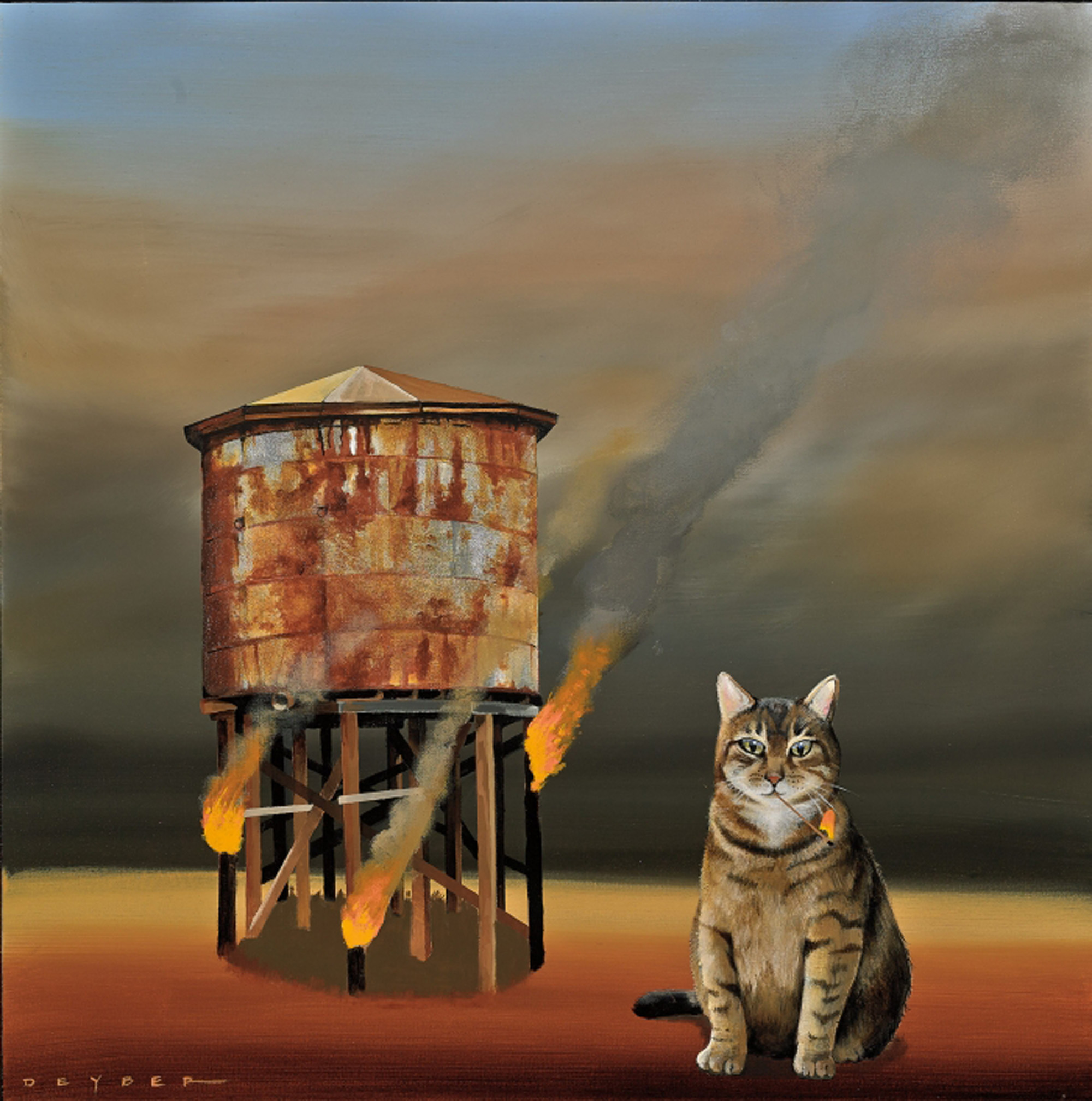

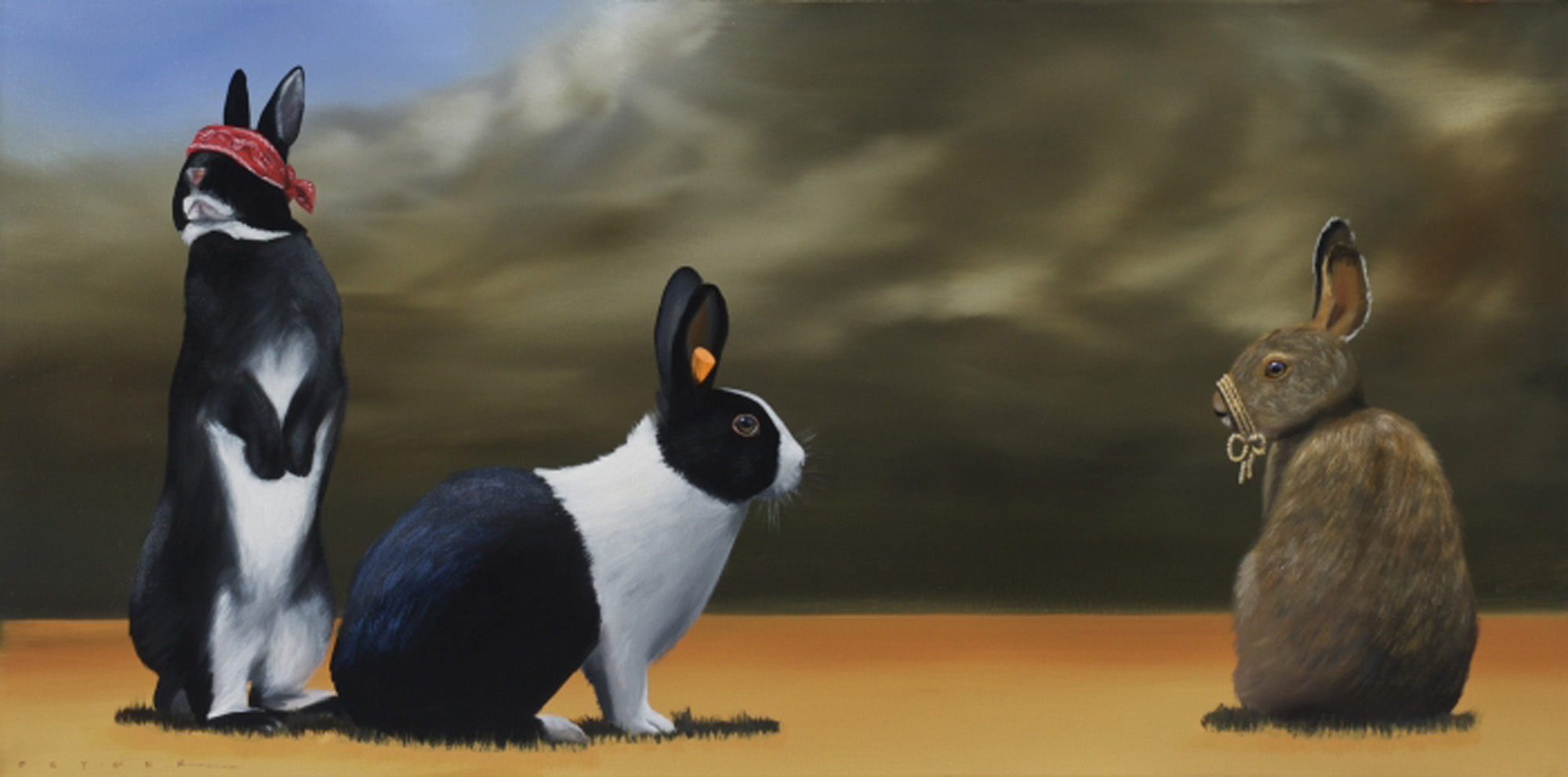
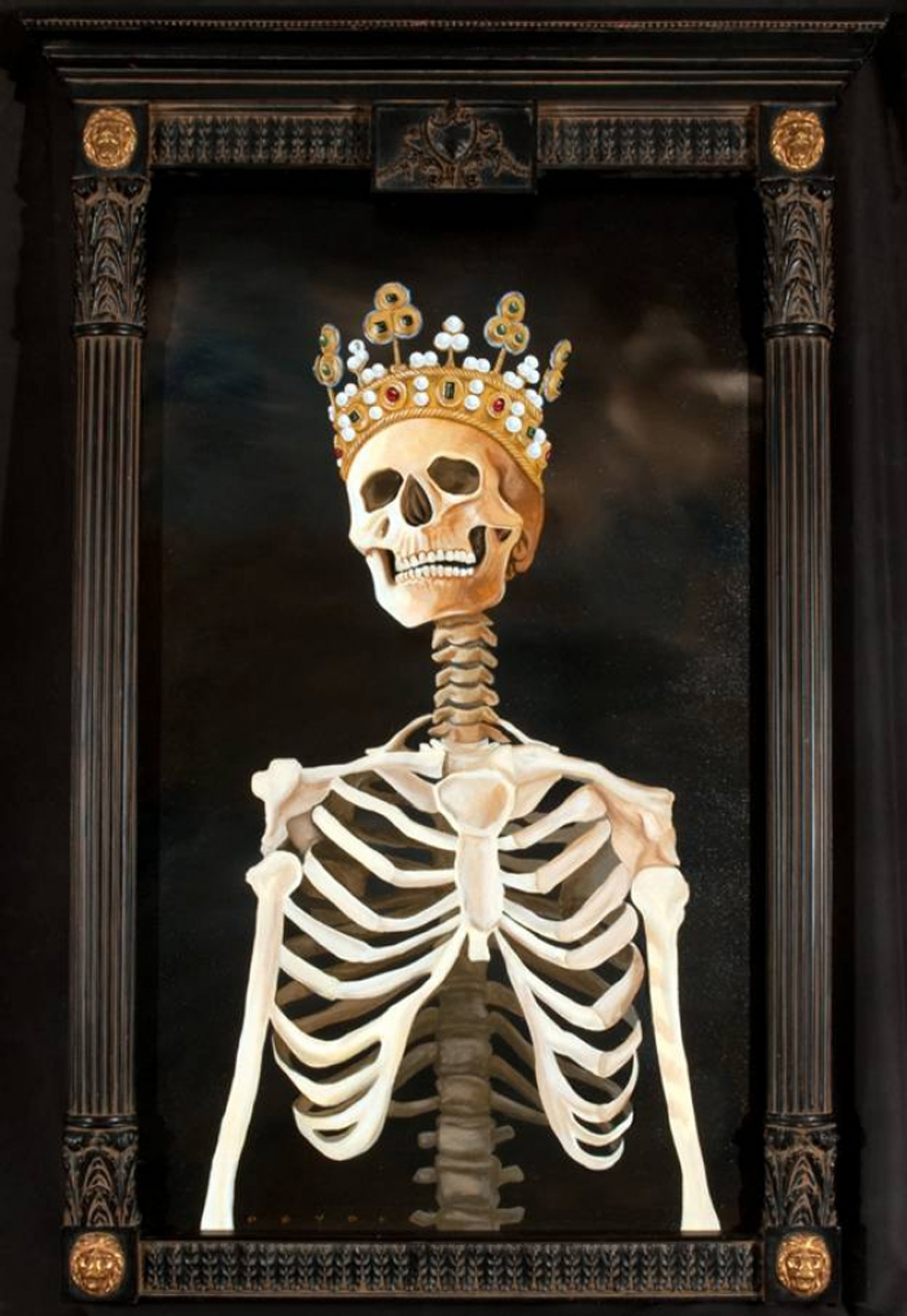
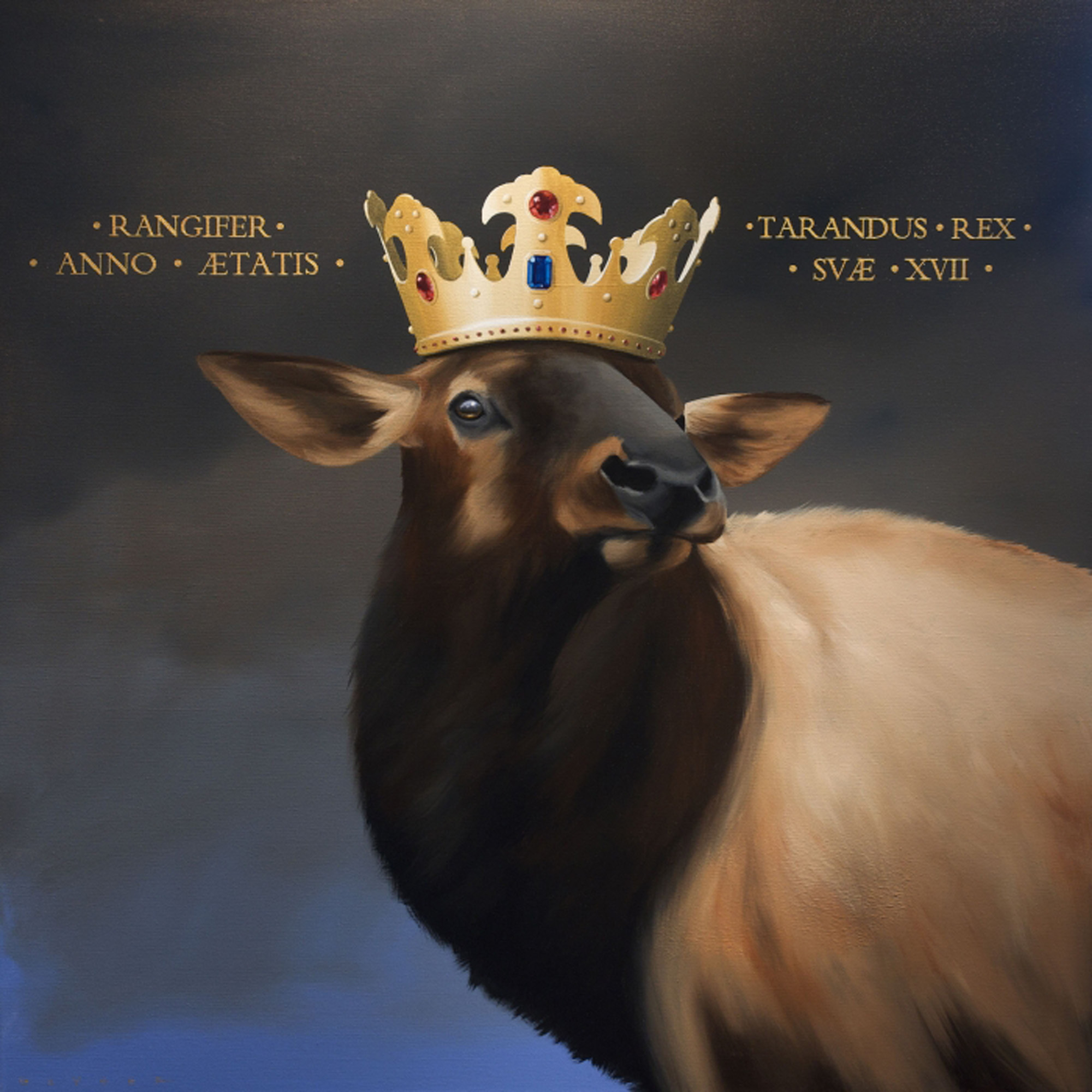
Just love Roberts work. I really enjoy the play on words with great art !
Enjoyed this perspective, and talent!
Seeing you post this today I appreciate all the work you do here! Hugs! Bri